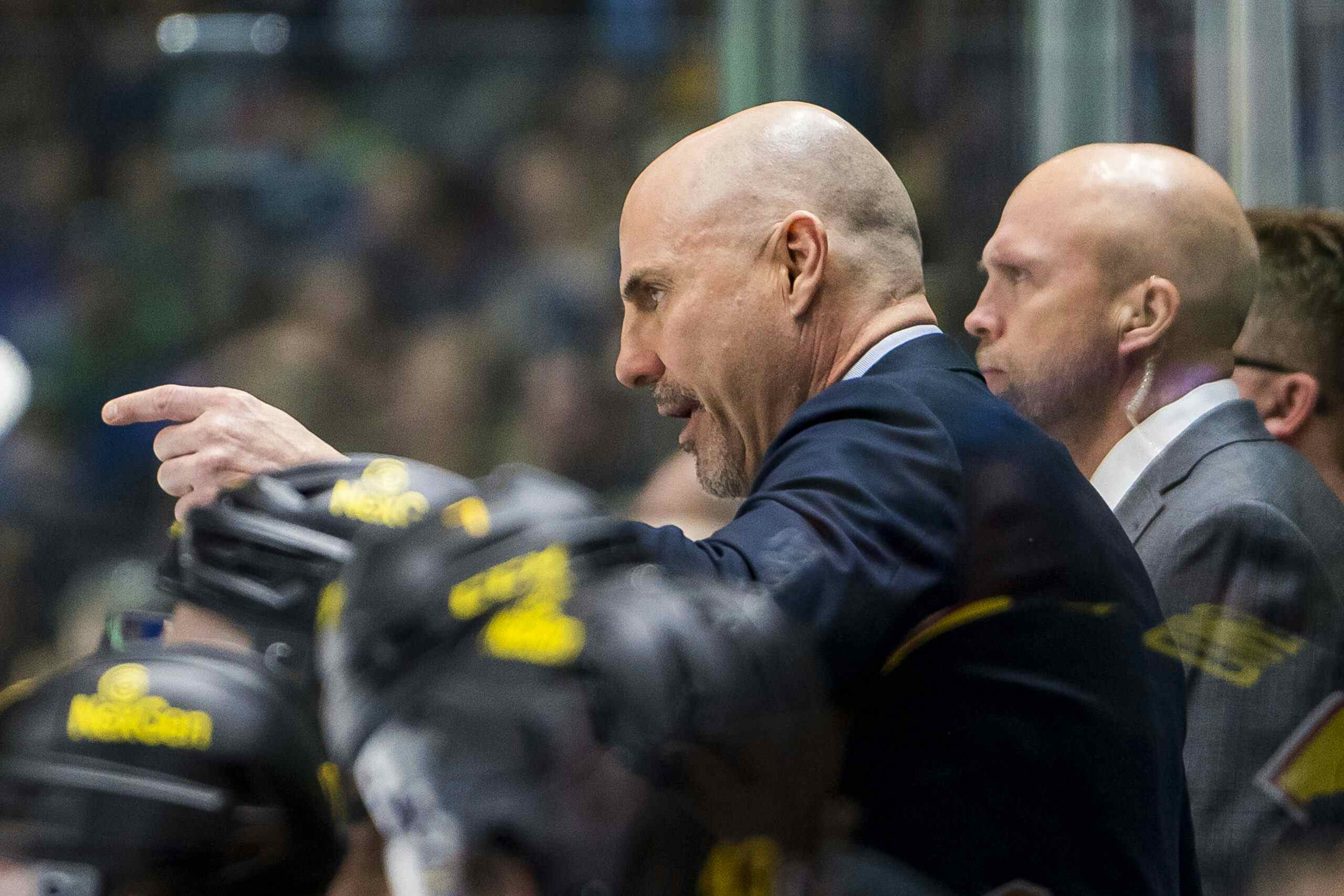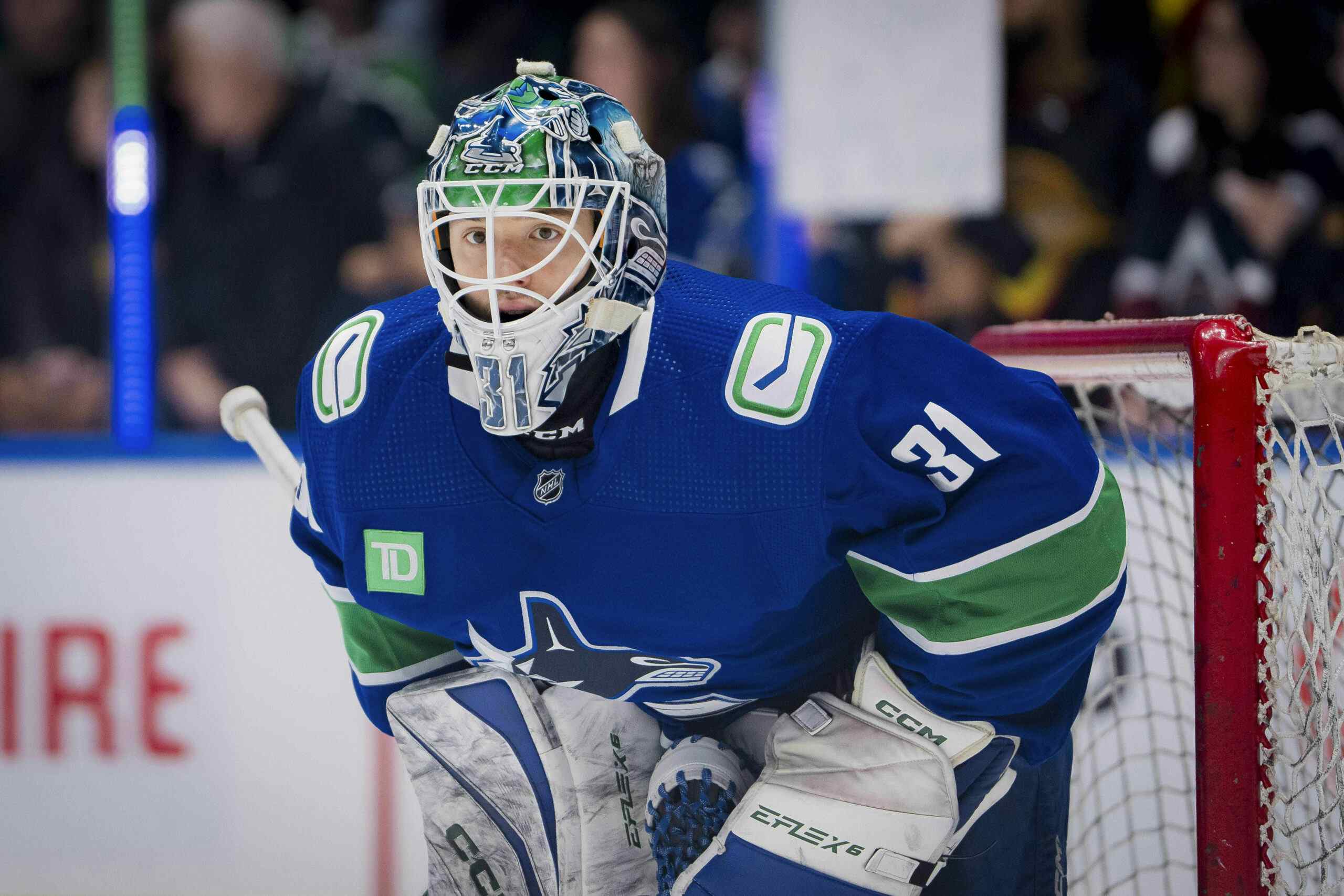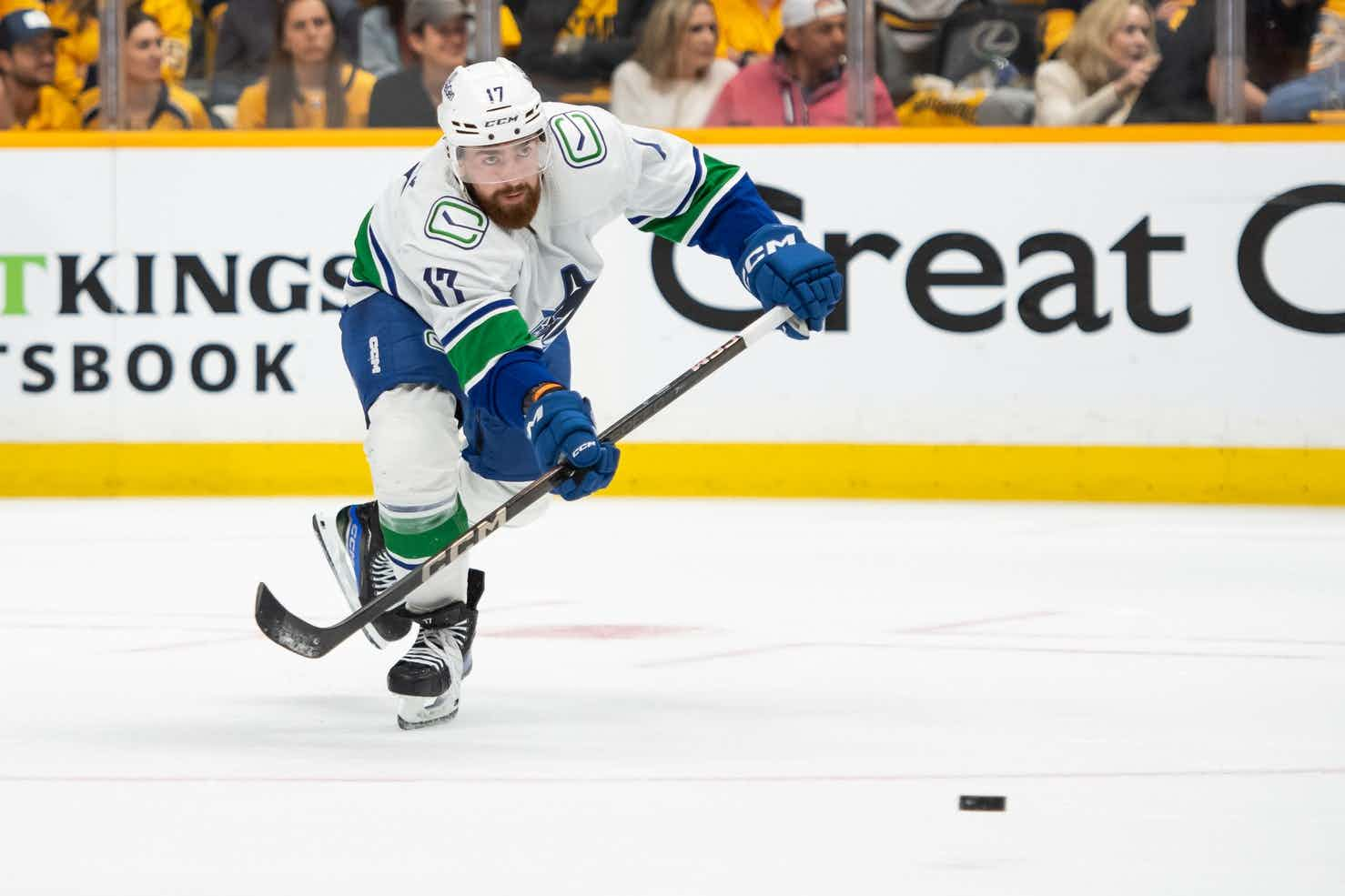Is Using A Goaltender As An “Expansion Shield” The Canucks’ Best Option?
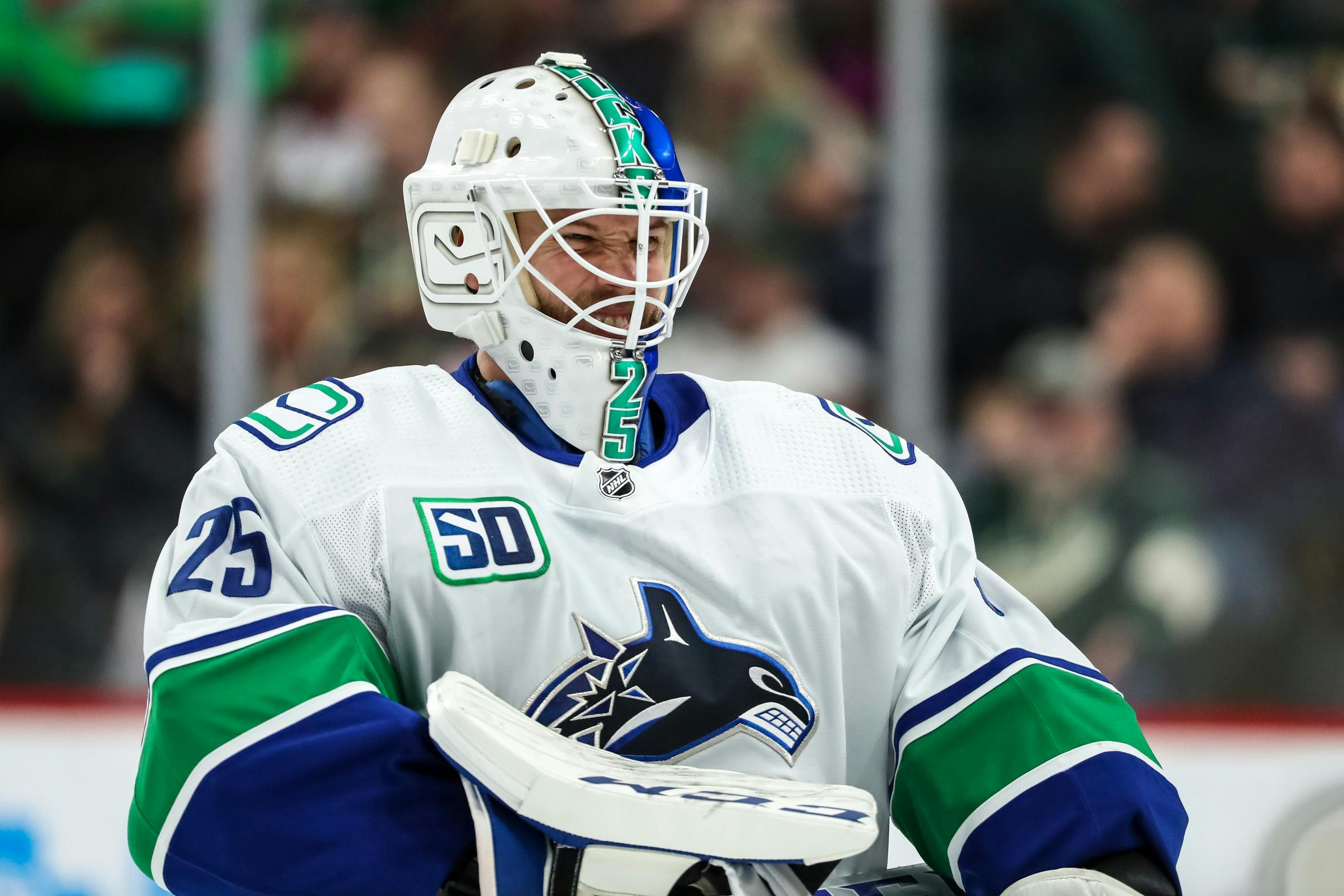
Stop me if you’ve heard this one before: the Vancouver Canucks are currently in possession of two NHL goaltenders, one an established veteran in their prime acquired from Florida and the other a young up-and-comer developed within the franchise, and both are capable of being starters.
It’s a set of circumstances that presents a team with a handful of options, but standing pat really isn’t one of them – least of all with the 2021 Expansion Draft looming. Last time around, the Canucks took what many at the time considered to be the worst possible option – trading both Roberto Luongo and Cory Schneider in quick succession – though time has been kind to those transactions. After all, it’s not every day that one bungles a goalie controversy and still ends up with Jacob Markstrom and Bo Horvat.
This time around, GM Jim Benning and the Canucks have even more potential paths to a netminding resolution to consider, but there’s one option that stands out among the rest as the wisest possible choice. We’ll get to that in a moment, but first let’s look at the other options, and why they’re bad.
The Other Options, And Why They’re Bad
As it stands now, the Canucks have about six ways they could resolve their currently crowded crease before or during the 2021 Expansion Draft. They are, as follows:
1) Trade Jacob Markstrom before the 2020 Trade Deadline.
This option has a lot going against it. For one, it would mean the Canucks more-or-less giving up on their playoff aspirations for 2020, and that would send an awful message to both the players and the fanbase. It’s also questionable whether or not an unsigned Markstrom would garner a worthwhile return at the deadline.
2) Letting Jacob Markstrom walk as an unrestricted free agent.
This is probably the very worst option. This would allow Markstrom to stick around for a potential playoff run in 2020, but he’d do as a lame duck – and then the team would lose him without any compensation. That’s not a great look for the organization.
3) Trading Thatcher Demko at some point before the 2021 Expansion Draft.
This is a fine option, but it means giving up on all of Demko’s future potential and pinning the entirety of the franchise’s hopes on the 30-year-old Markstrom (and perhaps Mike DiPietro somewhere down the road). Unless Demko rapidly deteriorates over the next season-and-a-half, this would be an incredibly risky path to take.
As well, if Demko is the one that the Canucks decide to trade, it will mean that he hasn’t yet forced an equal-time situation with Markstrom – and that will hurt his value on the trade market.
4) Re-signing Jacob Markstrom and then trading him at some point before the 2021 Expansion Draft.
In many ways, this seems like the most likely option. Depending on the terms that Markstrom would be willing to re-sign for, he could still garner a sizeable return in a trade – though the goalie market is far too tumultuous to predict. However, this option would require the franchise having full faith in Demko as a playoff-quality starter moving forward – and it will be difficult for them to determine that while Demko is still sharing the crease with Markstrom.
The chances of Markstrom not demanding some form of trade protection on his contract are also slim, so that would have to be navigated before any transaction – though as our own Michael Wagar astutely pointed out weeks ago, a full NMC should be a non-starter. There are also Demko’s health concerns to consider.
5) Re-signing Jacob Markstrom, keeping Thatcher Demko, and swinging a trade with Seattle at the 2021 Expansion Draft to keep both.
On the surface, this might seem like a “best of both worlds” scenario, but it’s actually one of the least workable. For one, it would cost assets – and the negotiation would be one in which Seattle holds all the cards. As well, it wouldn’t do anything to solve the “controversy” of the matter. It’s hard to imagine Demko wanting to stick around in a backup role beyond the age of 25, and it’s equally tough to picture Markstrom acquiescing to a long-term 1A/1B situation. At some point, the Canucks will have to choose which goaltender they’re going to roll with – and this option does not help them do that.
With that all plainly laid out, it’s time to examine the option that precipitated this entire article, and the one that Benning and the Canucks should almost certainly be moving toward:
Re-signing Jacob Markstrom, keeping Thatcher Demko, and using one of them as an “Expansion Shield” for the 2021 Expansion Draft.
By “Expansion Shield,” we mean a player that the Canucks intend for the Seattle TBAs to select in the Expansion Draft, thus protecting any other players from being selected.
First, we’ll break down whether or not such a sacrificial play would even be necessary – and then we’ll go over all the many benefits to this particular course of action.
Is An “Expansion Shield” Necessary?
It’s impossible to know exactly what the Canucks’ roster will be when the 2021 Expansion Draft comes around, but we can make some pretty solid predictions a year-and-a-half out.
The Canucks will almost certainly choose the option of protecting seven forwards, three defensemen, and one goaltender – and the following players are absolute locks to be protected:
Protection Locks (Forward)
Elias Pettersson
Brock Boeser
Bo Horvat
JT Miller
Protection Locks (Defense)
Tyler Myers (Probably!)
Up front, that means just three protection slots available for all of the following:
Protection Maybes (Forward)
Jake Virtanen
Adam Gaudette
Antoine Roussel
Micheal Ferland
Josh Leivo (if re-signed)
Zack MacEwen
Kole Lind
And on defense, there will be just two protection slots available for:
Protection Maybes (Defense)
Chris Tanev (if re-signed)
Troy Stecher
Olli Juolevi
Brogan Rafferty
Nikita Tryamkin?
That’s to say nothing of any additional players the Canucks acquire between now and 2021, of which there will presumably be at least a couple.
This sets up a situation in which the Canucks could feasibly have a rather valuable list of players available for Seattle to pluck. Just imagine Vancouver’s new regional rival getting their hands on Olli Juolevi after all those years of development, or the heart-and-soul of Antoine Roussel, or the diamond-in-the-rough that is Brogan Rafferty. Even worse, picture a scenario in which the Canucks do add an additional top-six forward and are then forced to expose local legend Jake Virtanen to the void of expansion. It’s enough to make the blood boil.
In other words, this isn’t going to be one of those “Lose Brendan Gaunce or Luca Sbisa” sort of Expansion Drafts – this one is going to hurt. But the Canucks can mitigate a lot of that pain by planning on offering up one of Jacob Markstrom or Thatcher Demko to the NHL’s newest franchise – and there are loads of additional benefits that come with taking that option.
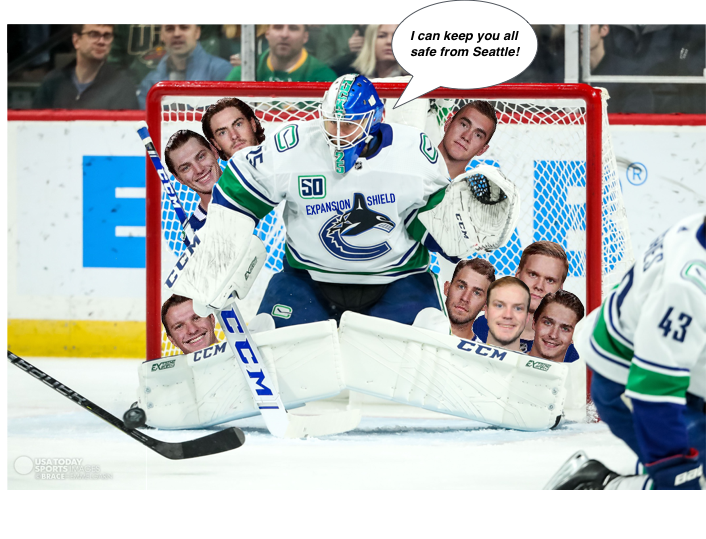
Benefits Of The “Expansion Shield” Option
#1: It Does Not Take Anything Away From The Current Team
The Canucks of the present day are certainly better off for having both Jacob Markstrom and Thatcher Demko, and this option keeps both of them in the fold for the next season-and-a-half. For a team that signalled its intention to make the playoffs in both 2020 and 2021 with the JT Miller trade, maintaining the tandem is crucial.
#2: It Will Give The Canucks Valuable Time To Inform Their Eventual Choice
As of right now, choosing between Jacob Markstrom and Thatcher Demko is incredibly difficult. Markstrom is more proven and consistent, and there’s no telling if Demko will ever reach his current level of performance. Demko, on the other hand, has youth and contract status on his side – though his multiple concussions is a concern.
Keeping both goalies until the Expansion Draft will give Jim Benning and Co. one-and-a-half-seasons worth of data to further inform their inevitable choice between Markstrom and Demko – and that should hopefully lead to the right choice being made.
#3: Those 1.5 Seasons Should (Hopefully) Include At Least One Playoff Series
Neither Jacob Markstrom nor Thatcher Demko have played a single second of Stanley Cup Playoff hockey. If the Canucks were to choose to hand the job to one over the other during the 2019/20 season, they’d be doing so without knowing how each netminder performs in the playoffs – and that’s an unnecessary gamble.
#4: Goaltending Is The Most Replaceable Position In The Organization
Don’t take this the wrong way. Goalies are valuable, and having a good netminder is still vital to competing in the NHL. Still, you really only need ONE starting-quality goalie on your team to win – whereas you need twelve forwards and six defensemen. For a team like the Canucks that have the organizational depth to replace a goaltender from within, sacrificing a goalie off the roster makes the most sense. The Canucks don’t have too many NHL-ready forwards and defenders waiting in the wings – but they do have a surplus of goalies.
#5: It’s An Option That Seattle Would Definitely Go For
Of course, none of this works if Seattle would still rather take a forward or a defenseman from the Canucks’ unprotected list. Fortunately, it’s difficult to imagine the new franchise passing up on the chance to draft a Vancouver goaltender.
As a young, cheap goalie with plenty of years worth of RFA status left, Demko has obvious value in an expansion draft – there weren’t many goalies like him available when Vegas made their selections. But that value pales in comparison to what Jacob Markstrom would offer to the Seattle TBAs.
The Vegas Golden Knights and Marc-Andre Fleury proved that pairing an expansion franchise with a star netminder is a winning combination – and who better than an All-Star who has already done his best work in the Pacific Northwest? Having a former high-profile Canuck in the fold would be an excellent way for Seattle to convert some fans.
#6: It Doesn’t Cost Any Assets
This point can be kept short and sweet. The Vancouver Canucks are not an asset-rich team, and this option doesn’t cost any. Next!
#7: The Value Of Keeping A Player Might Exceed What Either Goalie Would Return In A Trade
The goaltending market is fickle. As was mentioned above, the Canucks always have the option of trading either Jacob Markstrom or Thatcher Demko whenever they want, but it’s questionable that they’d receive good value for either. It’s tough to imagine them getting anything more than a mid- to late-first round draft pick and change for either player – even after they each sign a contract extension.
If further additions to the team force the Canucks to expose a player like Adam Gaudette, Chris Tanev, or a new-and-improved Olli Juolevi, would that really be more worthwhile than a late first and a “B” prospect? Probably not.
#8: The Mike DiPietro Factor
We’ve come this far without much mention of Mike DiPietro, but it’s time. If the Canucks were to ditch either Jacob Markstrom or Thatcher Demko before the 2021 Expansion Draft – and if DiPietro were to continue excelling at the AHL level – it’s not unfeasible that Seattle could be interested in poaching the young netminder.
DiPietro’s got a low salary, waivers exemption, and a high profile from the World Juniors going for him. Keeping one of Markstrom or Demko around for the Expansion Draft keeps DiPietro safe, and that’s important for the long-term health of the organizational goaltending depth.
#9: The Canucks Can Always Bail Out Into One Of The Other Options At Any Point
If Jim Benning and the Canucks plan to use one of Jacob Markstrom or Thatcher Demko as an “Expansion Shield” in 2021, they can still decide to go in a different direction at any point. If either goaltender completely steals the job, they can just trade the other one. If they receive an offer for one of the goalies that is too good to turn down, they can just say “yes.” If Markstrom demands a NMC, this plan obviously won’t work, but then you just don’t re-sign him. And if one of them loses their touch, it might mean that Seattle doesn’t end up wanting them – but at least the Canucks won’t have committed to that individual!
As long as the Canucks don’t let Markstrom walk away for nothing this offseason – and as long as his contract demands are reasonable – the ball will remain in the Canucks’ court until the summer of 2021 finally rolls around. All that’s required is a little patience – and if there’s one thing the Vancouver fanbase is known for, it’s patience.
Recent articles from Stephan Roget


